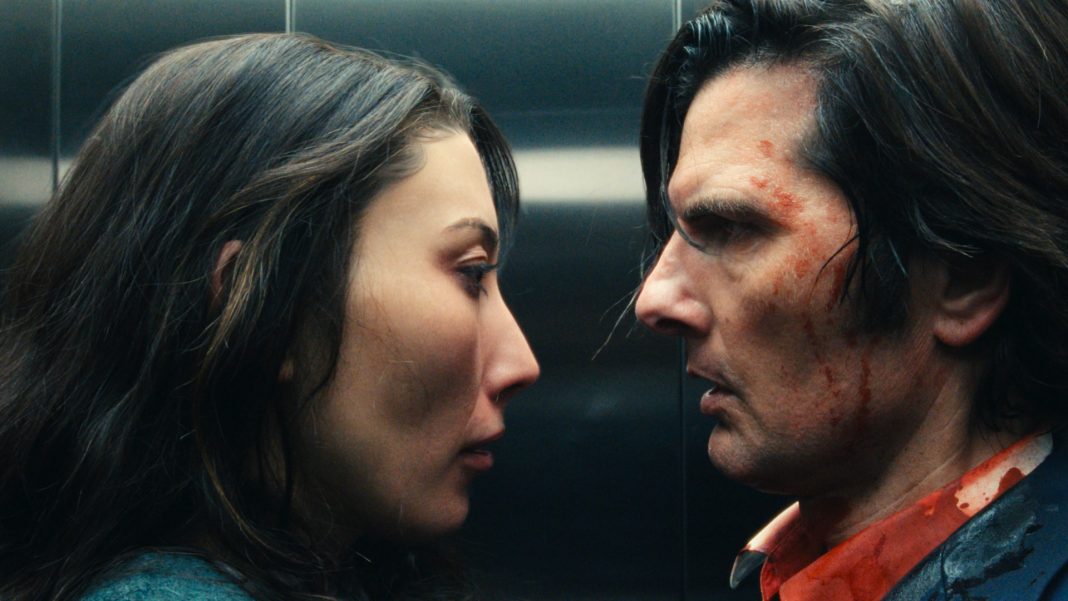Right about now a whole lot of TV critics are busily pencilling down reminders to include Severance in their end of year lists for 2025’s best TV.
Meanwhile, myriad online outlets are crafting “If You liked Severance then check out these 10 other shows just like it!” style pieces. I’ll admit I haven’t clicked through on too many of those because deep in my Severance-loving heart I know those other shows are just not as good as the writers who whipped those articles up pretend they are.
And this Friday, one week following that finale, the Severance discourse still dominates online spaces. Was that Helly or Helena at the end? (It was Helly). Has Dylan finally become the badass his Outie thinks he is? (Totally.) Will Milchick convert to the other side? (I don’t care as long as we get more Milchick), and WTF Mark S.?
Created by Dan Erickson, and directed by Ben Stiller and Aoife McArdle, Severance has been a resounding success for Apple TV+, starting out its first season as a quirky but obscure TV show about work-life balance, and ending a glorious second season with a spectacular brass band entrance for the cast at Paleyfest LA. There isn’t a single executive in TV Land who doesn’t wish they could mirror a little of that success on their own channel or streaming service right now.
So, does this mean we’re gonna get a lot of Severance clones in the near future?
Probably.
Will they be as good as Severance?
Probably not.
Severance simply has too much going for it to be so easily replicated.
At its core, the show hinges on a strikingly original premise: employees at the ominous Lumon Industries undergo a procedure that splits their memories, creating two distinct selves — one for work, and one for personal life. When at work, our hapless heroes recall nothing of their outside existence, and vice versa. While the “innies” at work are ripe for all manner of exploitation from their quasi-religious, cult-loving employers, their “Outies” at home know nothing of it.
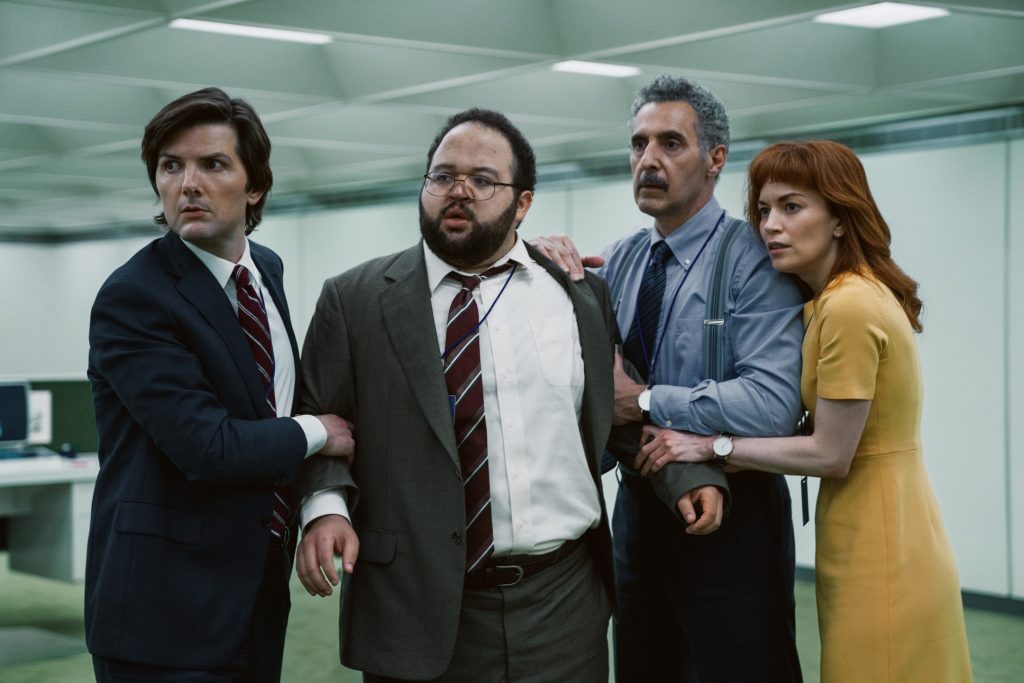
This sci-fi conceit isn’t just a clever twist; it’s a lens through which the show examines identity, free will, and the psychological toll of corporate life. Unlike broader explorations of memory in shows like Westworld (which went a little off its tracks in later seasons to be honest), Severance roots its concept in the mundane yet relatable setting of the workplace, making its philosophical inquiries feel immediate and deeply personal.
At the core of that feeling of immediacy, and at the core of the show itself, is Mark Scout (Adam Scott), a widower who chooses to be severed so that he can escape overwhelming feelings of loss and sadness, even if just for a few hours. In fact, each of the 4 main characters has freely given away control of their work lives in exchange for their pain. The TV writing adage “story is character, and character is choice” has never seemed more appropriate here.
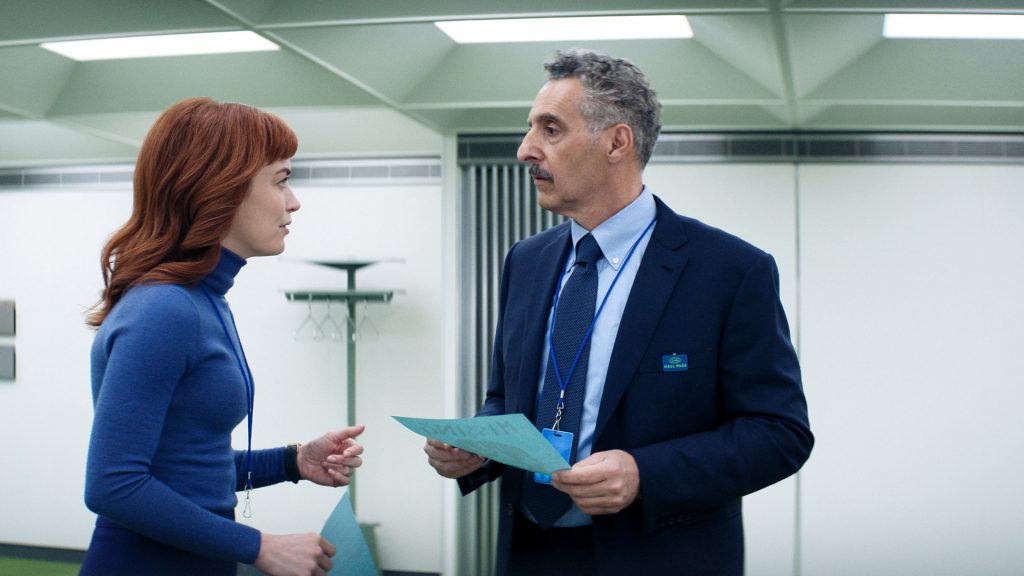
Severance doesn’t shy away from big questions either: What defines us? How much autonomy do we surrender to work? Can we compartmentalize our lives without losing ourselves? And if we do surrender some part of ourselves, who do we become? These themes, explored through the lens of its severance procedure, resonate in a world increasingly blurred by work-life overlap. Yet, the show balances its intellectual heft with accessibility, and dark humor, inviting viewers to ponder without preaching.
The show neatly juggles sci-fi, mystery, drama, dark comedy, and moments of the deeply weird too (waffle parties, sexy waffle party dancers, the marching band from the department of Choreography & Merriment, goats, that “ORTBO” team-building retreat, everything about Irving’s funeral, including the melon bust of his head, more goats!), with surgical precision, creating a tone that’s eerie, challenging, often confusing, yet still wryly funny. This blend is a total tightrope walk. Too much humor risks undermining the tension. Too much gloom could alienate viewers. Few shows manage this equilibrium so deftly. It’s a rare synergy of writing, direction, and performance that’s very hard to get right, and near impossible to replicate.
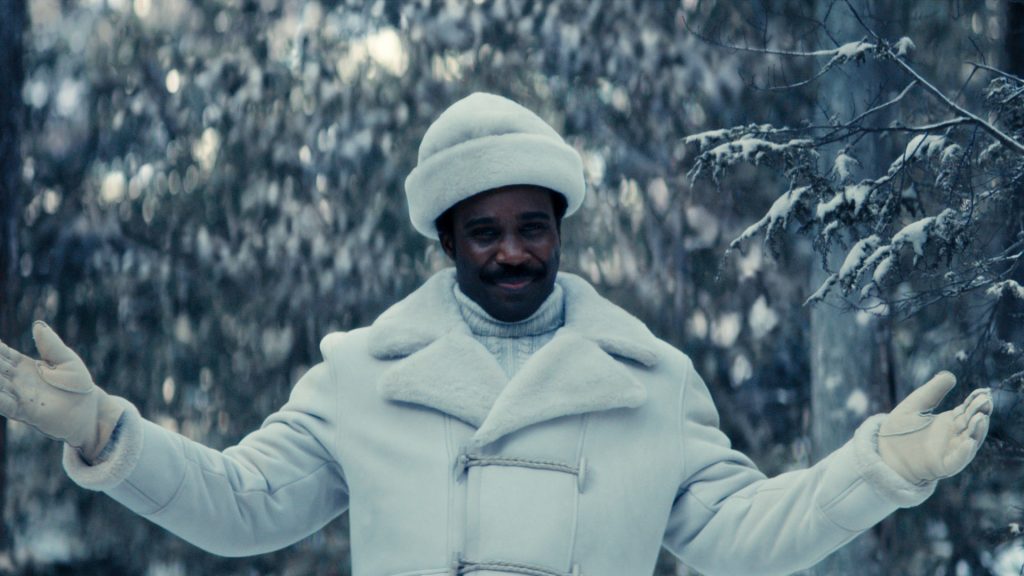
Visually, Severance is a triumph too. The show’s production design crafts a sterile, retro-futuristic office (is it the 1970’s or some time in the 2030’s?) that contrasts sharply with the perpetually snowy outside world. The result only reinforces the show’s themes of control and duality. Cinematography makes use of symmetry, muted palettes, and deliberate framing to create an unsettling yet deeply captivating atmosphere. This attention to detail is incredibly well crafted. Literally every visual choice serves the story in some way.
Episode 7 “Chikhai Bardo” featured the directorial debut of Severance cinematographer Jessica Lee Gagné. TVPulse Magazine called it “one of the most artistic hours of TV since the “Honeydew” episode of The Bear.” Visually stunning, beautifully lit and framed, and so so gracefully transitioning from warm sepia-toned flashbacks to the cold sterile present, and back again, Gagné’s episode was a feast for the senses and the heart.
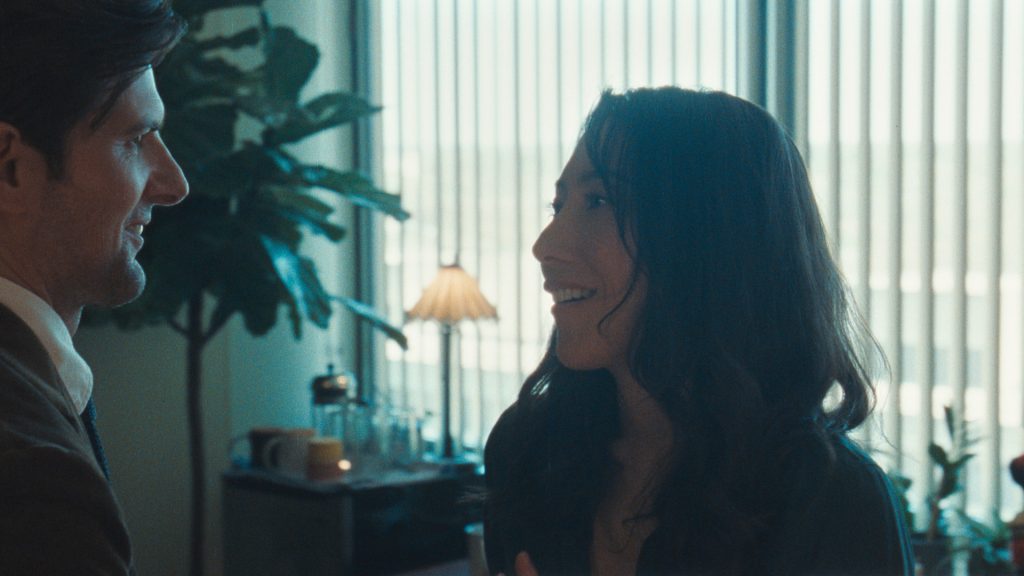
The show’s slow-burn pacing and intricate world-building are integral to its allure, but they’re also risky. In an era of binge-friendly, fast-paced familiar-feeling content, Severance demands patience, unraveling its mysteries gradually while trusting viewers to stay invested. (I won’t mention that during the Pandemic some of us who watched the show from episode 1 had to wait almost 3 years for the resolution to one of TV’s best ever cliffhangers. We were not ok!) This approach, coupled with the significant creative and financial investment needed for its detailed production, makes it a daunting prospect for many networks and creators.
Now might be a good time to mention that Apple TV+ is losing about $1 billion every year to keep its shows on the air. A relative newcomer, the streamer simply doesn’t have as deep a catalogue of content as heavy hitters like Netflix, and Disney+. Cultural impact plays a role too, with people simply not considering the new streamer as a choice for watching TV. Industry leader Netflix has a subscriber count of 301.63 million, according to the data, while Disney+ has 124.6 million users, followed by Warner Bros Discovery with 116.9 million. In comparison, Apple TV+ is estimated to have hit 40.4 million at the end of 2024.
The numbers are daunting. And not just in a “scary numbers” Severance way. (Ooh! a 4!) Apple TV is willing to take a massive loss in order to produce a prestige show, with an eye to profitability, popularity, and of course, subscribers, down the line. This is not something a broadcaster like CBS, ABC, NBC, or FOX can afford to do. In 2025, most shows get 10 episodes of an initial season in which to make a splash. If that splash fails to happen, the show will be canceled.
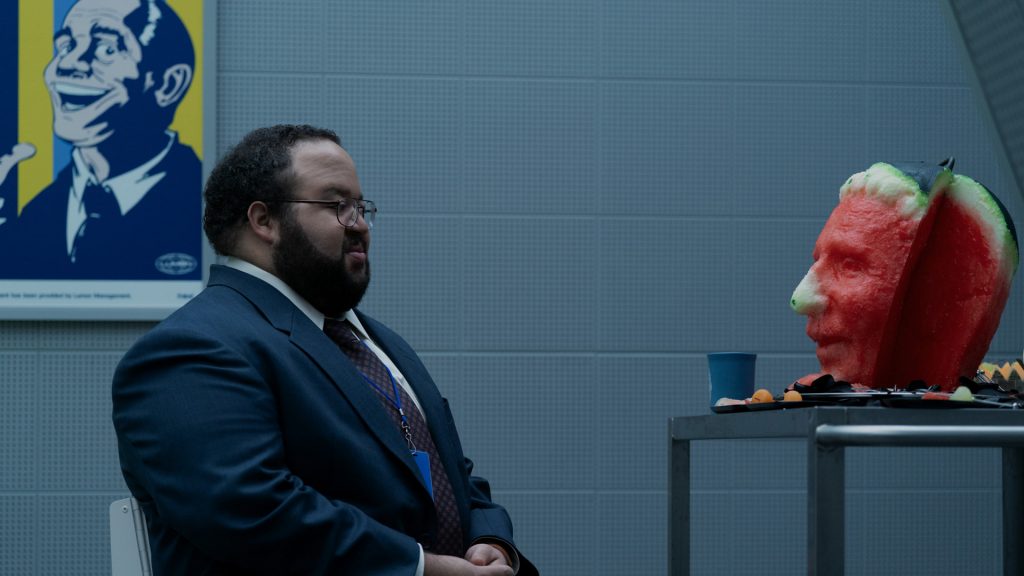
Broadcast also relies on “the same but different” model, with some Networks leaning heavily on spin-offs for their bread and butter. If you liked Cop Show, wait until to see Cop Show: New York, and Cop Show: LA. Coming soon!
Others churn out new procedural dramas every year that specifically appeal to viewers who don’t want to be too challenged by their late night programming, preferring the comforting familiarity of a crime or mystery-solving TV stalwart to a contemplation of free will vs. control, or a dissertation on trauma, grief and escapism. (Hey, no judgement. we’ve all been there. I’ve reviewed enough shows over the years to understand there is definitely a place for TV that doesn’t require too much from its viewers.) I’m not saying that if Severance landed on US Broadcast it wouldn’t have made it to Season 2. But I’m also not not saying that.
Since its debut, Severance has garnered widespread praise, earning Emmy nominations and critical raves for its writing, its direction, and its performances. This acclaim isn’t just a byproduct of its quality; it’s a marker of its cultural impact. And cultural impact is made by taking risks — both creatively and financially — and by choosing to bullishly ignore industry trends.
Ultimately, the show is a product of unique alchemy: a bold concept, truly artistic direction and cinematography, a stellar cast, and a platform willing to gamble on originality. This confluence is rare. It’s not just one thing that makes Severance unique. Rather, it’s the seamless integration of many, making it a feat few can hope, or are able, to duplicate.
Severance doesn’t just sever its characters’ lives; it cuts through the noise of most modern television offerings, proving that the medium still has room for daring, singular visions. As its influence grows, it may yet inspire a new wave of shows willing to take the same leap.
But for now it stands alone.
